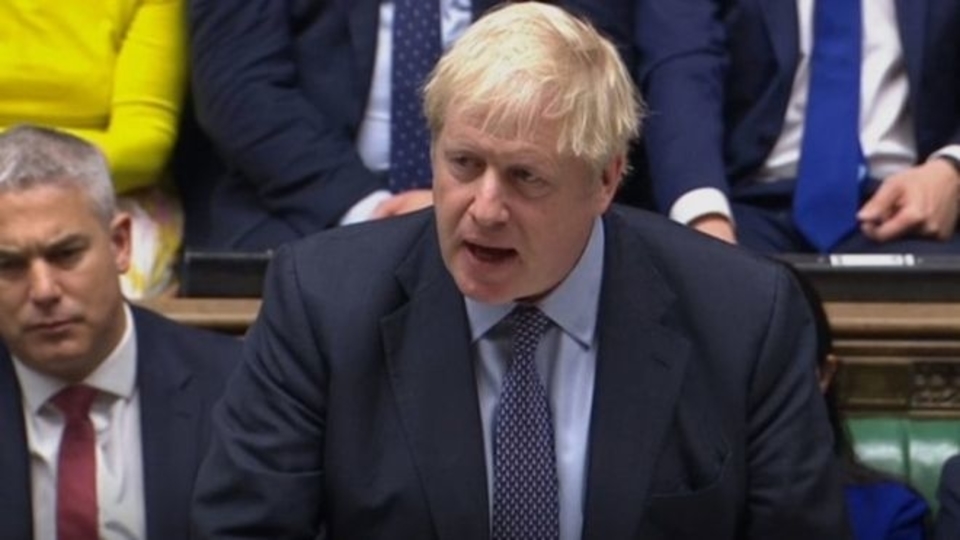With 12 more days to go for the Brexit deadline of October 31, the British House of Commons has begun a special session for a decisive vote on the new agreement. After a seemingly successful negotiation with the EU, the Boris Johnson government requires parliamentary approval if the deal is to go through.
At the very outset, the deal has failed to impress the Northern Irish allies of the Conservative party. The Democratic Unionist Party, which has given outside support to minority Tory governments since 2017, has opposed the deal over the temporary trade and customs arrangement the deal would establish.
According to the deal, Northern Ireland will leave the EU and the Customs Union along with the rest of the UK after the end of the scheduled transition period on December 2020. However, in practice, a separate customs arrangement in line with that of the EU will continue in Northern Ireland until a second transition period which will last till 2024. Northern Ireland will also continue to follow the rules of the EU common market when it comes to the regulation of goods. Points of entry will be set away from the Northern Irish border and will only be for those goods that go to and from the rest of the UK.
After December 2024, when the second transition period ends, the Northern Ireland legislature will vote on whether or not to continue with the arrangement or exit from it. This vote will take place every four to six years.
The DUP has opposed the transitional arrangement, fearing that the Irish nationalists who have a plurality in the regional legislature will keep voting to continue the arrangement indefinitely. They have also vowed to vote against the deal once it is tabled.
This arrangement is quite different from the Irish backstop that was proposed earlier by the Theresa May government, which caused the DUP and many within the Tory party to oppose and vote against the entire deal.
The deal would give the Northern Irish assembly significantly greater control over the extension or exit from the arrangement than either London or Brussels. In the current assembly, the Irish nationalist and pro-EU Ulster Unionist Party together have two-thirds of the legislators. The DUP, which has never had more than a third of the seats, believes that the current deal is roundabout way to keep Northern Ireland tied to the EU indefinitely.
Johnson will face difficulties in getting the required numbers. The other option is extending the Brexit date, something he is dead against. The Conservative Party has 287 voting members in the House, out of the total 640 voting members, discounting the Irish abstentionists and the non-voting Speaker and Deputy Speakers. The Tories need 321 votes to get the deal passed.
There are 36 MPs who sit as independents, including 21 Tories who disobeyed the whip in September by voting against the prorogation of the parliament by the government and in favor of the opposition legislation preventing a no-deal Brexit. It also includes two other Tories who resigned over political disagreements with Johnson’s Brexit plan.
Reports have suggested that the government will try to get the 23 MPs on their side for the deal. The government also plans to pass a whip for the party MPs, which means voting against the deal can entail expulsion. Even if the government gets the expelled MPs and its entire flock remains intact, it will still be 11 votes short of a simple majority. The DUP which has 10 seats could have been a useful ally to pass the deal, but seems unwavering in its opposition.
Johnson will have to then depend on ex-Labour MPs and some rebel Labour legislators to back the deal. This can be tricky if Labour passes a whip and threatens consequences against MPs who are planning to vote in favor of the government.
The Benn Act that was very successfully passed by the opposition in September to prevent a no-deal Brexit stipulates that the government must get a deal passed in the House by no later than October 19. If it fails to do so, the government will be forced to request an extension from the EU, the letter for which has already been dictated by the Act.
In the meanwhile, Oliver Letwin, one of the 21 Tory rebels who voted against his party in September, is planning an amendment to the deal, which already has the support of the Labour party. The amendment will seek to push the date of Brexit, even if a deal gets passed today. This is to avoid a no-deal Brexit on October 31, as the bill still has some more stages to pass through before ratification.





